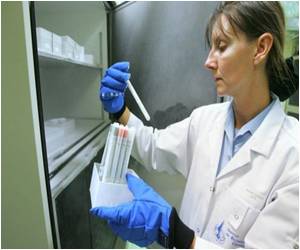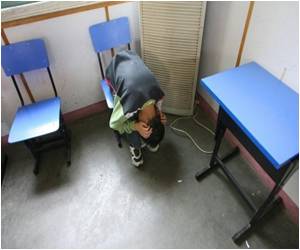Angelman syndrome is a debilitating genetic disorder that occurs in more than one in every 15,000 live births.

Currently, there is no way to treat AS, which delays brain development and causes lack of speech, seizures, walking and balance problems and sleep disorders. In the last five years, however, scientists have found two approaches that hold considerable promise that will soon be undergoing clinical trials.
"One of the problems with assessing the effectiveness of treatments for AS is that it might take years for the improvements to become apparent," said co-author Terry Jo Bichell, the doctoral student at Vanderbilt University who performed the pilot studies of the relationship between AS and Circadian rhythm. "However, the slower biological clock in Angelman syndrome could provide the quickest way to prove that a treatment is working. Normalization of the core circadian rhythms of AS subjects would be a great biomarker for experimental medications."
Angelman syndrome, which is often misdiagnosed as cerebral palsy or autism, is caused when the maternal copy of a specific gene, UBE3A located on chromosome 15, is missing or damaged.
"This gene plays an important role in regulating the concentration of the enzyme ubiquitin ligase during development," said Carl Johnson, Stevenson Professor of Biological Sciences and senior author on the study. "Ubiquitin ligase, in turn, regulates a number of other proteins. When the concentration is too high, it can lead to autism, but if it is too low, it can cause Angelman syndrome."
Normally, an individual has both a maternal and paternal copy of UBE3A. However, only the maternal copy is expressed in the brain. The paternal gene is silenced. The majority of AS cases (68 percent) are caused by a "big deletion" where a big chunk of DNA including UBE3A is missing from the maternal copy of chromosome 15. Another 11 percent of the cases are due to point mutations that inactivate the gene and 7 percent occur in individuals who end up with two copies of the paternal gene. The remainder is due to several other causes.
"This is very exciting," said Bichell, whose son has AS. "Fifteen years ago when our son was diagnosed with AS there were no treatments. There weren't even any clinical trials."
The Vanderbilt researchers used two strains of mice that exhibited the symptoms of AS. One had the equivalent of the "big deletion" and the other had a point mutation in UBE3A. The researchers determined that the biological clocks of both strains ran significantly slower than normal. They also found that their biological clocks were not as robust as normal and were more easily influenced by environmental conditions. According to the researchers, these characteristics can account for the sleep disorders that AS patients experience.
"In many cases, animal models do not recapitulate the clinical features of major mental disorders," said Research Assistant Professor Shuqun Shi who performed most of the study. "But this is an exception. Angelman Syndrome is caused primarily by a loss of function of a single gene and the mouse models we used mimic many of the symptoms in human patients. Of course, we must be cautious when we try to apply the results of these studies to humans."
"If we can just find a treatment that allows AS patients to sleep soundly, it would be very worthwhile," said Bichell. "Dealing with sleep disorders can be one of the most stressful aspects of raising a child with AS."
Source-Newswise
 MEDINDIA
MEDINDIA




 Email
Email




